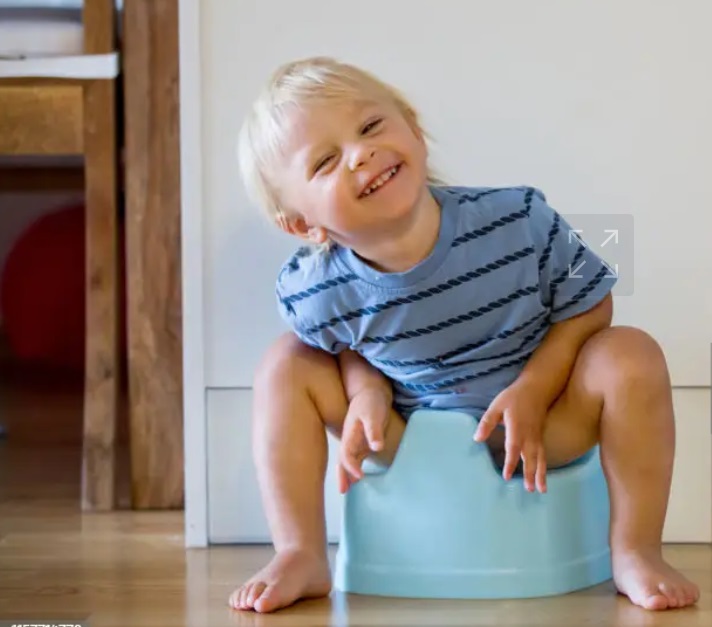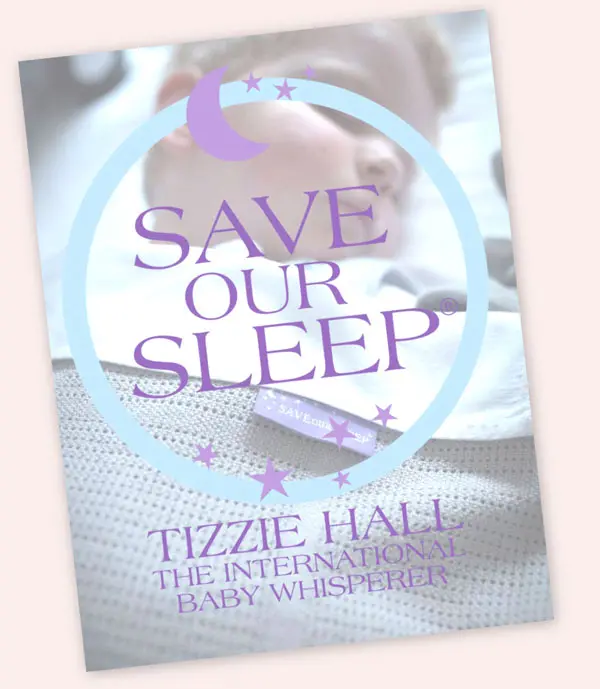Long before you consider potty training your toddler there are a couple of things you can do that will help when you decide it is time to train him. Many parents are very negative about the contents of their toddler’s nappy. They will greet a toddler’s poo with negative comments such as: ‘Oh no, what’s that disgusting smell?’ These parents give off very negative vibes. Toddlers pick up on this and start to see poos as a bad and often scary thing because Mummy and Daddy do not like poos.
The second thing I notice is that some parents change their baby and hide the contents of the nappy from them. A toddler might reach 22 months having never seen a poo. When they do see a poo for the first time on a potty, or if they take their own nappy off when you are not looking, it can be a very frightening experience for them. They do not know where this funny smelly brown thing came from.
From about fourteen months, start to make a big song and dance about poos. Say how good your little one is for doing one, and if possible, show it to him and suggest flushing it down the toilet and making a bit of a game out of it. If you can make poos seem a really happy, positive event then potty training will be far easier. Try saying things like: ‘Well done, Mummy is so happy you have done a poo for her and Daddy will be so happy to hear how many poos you have done today.’
When to start potty training

I believe you can only start potty training when your toddler has reached other milestones in his life. He will need enough words or signs to be able to communicate with you that he needs to use the potty. He needs to have a basic understanding of wet and dry. To be fully potty trained your toddler needs to be able to pull his clothes down and back up, wipe his own bottom and wash and dry his hands. As you can imagine, each toddler is going to reach this stage at a different time and you might even find siblings or twins will reach this stage at different ages. Of course, your toddler also needs to have bladder control and you will only be 100 per cent sure this is the case when you start to train him.
I often hear of parents who have put their toddler on a potty a few times a day from the age of nine months, but I believe this just makes the potty a boring place to be. Yes, he might do a wee on it but I believe it makes potty training harder when you actually come down to trying it for real. In my experience I have found most toddlers are ready to start potty training between 22 and 30 months. Starting too soon can just frustrate you and your toddler but if you leave it too late you may find you have missed the boat and your toddler is so used to ignoring the signs of going to the toilet and of going in his nappy that he refuses to train. Like most of the milestones I talk about in this book, I often find girls are ready to train much sooner than boys and children with older siblings are keen to train early.
I have found most toddlers do not have good enough bladder control to train before 22 months. As I said earlier, we have all heard of toddlers training very early and even babies not wearing nappies, but I believe this is down to the fact that parents are trained, not the toddler or baby. However, there is one exception to this and it is Elimination Communication, which is raising a baby without the use of nappies. In the early days parents rely on timing and they teach their babies cues such as saying ‘sssssssss’ when they notice the baby going to the toilet. I believe this approach can work but you would need to have a lot of time, patience and dedication.
Along with age there are signs of readiness that you should observe in your toddler before you start potty training. Your toddler might not show all of the signs but if most are present you can start to train him.
Signs your toddler is ready
• He is over 22 months old.
• He is aware of what is happening in his nappy. For example, he stops what he is doing, changes his facial expression, touches his nappy area or even goes and hides when he is doing a wee or a poo. You will need to watch out for this in relation to wees – most parents are aware when their toddler is doing a poo.
• He comes and tells you he is wet or has done a poo. Remember, he is more likely to tell you if you make it clear that it makes you happy.
• Your toddler needs to understand basic instructions like ‘sit down’, ‘stop running’ and ‘bring that to Mummy’. A child who understands basic instructions will more easily understand potty training.
• Try changing his nappy just before his day sleep and again when you get him up. If it is dry or very warm this is a good sign. If the nappy is dry it means he was dry for his sleep time and if it is warm the chances are he did a wee the minute he woke up.
• He needs to have a basic knowledge of getting dressed and un-dressed. He does not need to do or undo his zips or buttons because these clothes can be avoided during training, but he needs to be able to pull his own shorts or trousers up and down.
• He is able to concentrate on one activity such as a jigsaw, playdough or a book for five to ten minutes.
Hand-washing
A good way to tell if your toddler is ready for potty training – and to help him get ready for training – is to teach him the difference between wet and dry. This can be done through playing with water and teaching him to dry his wet toys, or at bath time by teaching him he is wet and needs to get dry with a towel. But most often the best time to teach him is when he is washing his hands.
By 22 months your toddler should be in the routine of washing and drying his hands before each meal or snack time. In the couple of weeks leading up to potty training, you can teach your toddler to tell you if his hands are wet or dry. When he washes them you can say: ‘George has wet hands’, or ask him if his hands are wet or dry.
At first he might not know but as time goes on and you talk about this more he will soon say his hands are wet. Teach him to dry his hands on a small towel and again ask him: ‘Are your hands wet or dry?’ It will amaze you how fast he will learn the difference. If your toddler finds these questions impossible to answer, he is just not ready for the potty yet.
Another good thing to try is getting your toddler to help you hang the washing on the line. Ask him to pass the wet sock and have a wet and a dry one for him to choose from. If you make a big deal about him getting these tasks right it will help him to understand the concept of wet and dry.
SHOP – Dreamwee Waterproof Bed-linen Protector Brolly Sheets

Join our newsletter and receive a FREE download of the world famous Save Our Sleep Safe Bedding Guide delivered straight to your inbox!
PLUS you will also receive a thank you gift offer shortly after.